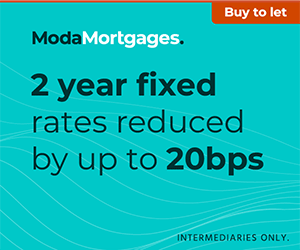Paragon Bank has found that there is a gulf in the amount that landlords are willing to pay to meet proposed new EPC requirements and what it is actually likely to cost.
A survey of landlords, carried out on behalf of Paragon Bank, has found that just over three quarters of landlords (77%) are willing to spend up to £3,000 to upgrade each property they own to EPC C in order to meet new regulations proposed by the Government. Further analysis by the specialist mortgage lender reveals that 78% of landlords would need to spend over this amount.
Taking into account the Government’s proposed cap of £10,000 per property, the average cost to upgrade each property to EPC C* is £10, 560, according to Paragon’s analysis.
The findings were published in a Paragon report titled, ‘The rental sector energy challenge’, which examines the potential impact on the private rented sector of proposed regulations that, if passed into law, will require all properties let for new tenancies to be rated EPC A-C by 2025, extending to all tenancies by 2028.
The report also includes insight on how buy-to-let property investors would fund the works. Six in 10 said that they would use savings, making it the most popular source of potential finance, followed by just over three quarters (27%) who said that they would increase rent. Almost one in five (19%) would rely on Government funding, just under one in 10 (8%) would utilise a further advance from a mortgage lender or take out loan, and a similar proportion (7%) would release equity from their portfolio.
The proposals may also influence investment in buy-to-let property, with just over two thirds of landlords (68%) surveyed stating that they are less likely to purchase homes with EPC ratings of ‘D’ or lower in the future as a result of the potential regulations. Just over one in five (21%) said that it would make no difference to their future acquisitions and 4% said that they would be more likely to purchase a property if it was rated below EPC C.
Richard Rowntree, mortgages managing director for Paragon Bank, said: “It is encouraging to see that landlords anticipate that future portfolio expansion will target properties rated EPC C or above, bringing more energy efficient properties into the PRS. Paragon is one of a number of lenders to offer favourable rates that provide a financial incentive to this.
“Of course, this is only part of the issue as data shows that a large proportion of current PRS stock is below the standard required by the proposed new regulations.
“The apparent disparity in what it is likely to cost to meet these standards and what landlords are willing to spend helps to illustrate the financial challenge the new regulations would pose to buy-to-let investors.
“There remains a lot of uncertainty around the proposals, so the sector needs some clear guidance from the Government. With this, my hope is that landlords will have a better understanding of how the new regulations would impact them and the resulting financial support they would require.”






